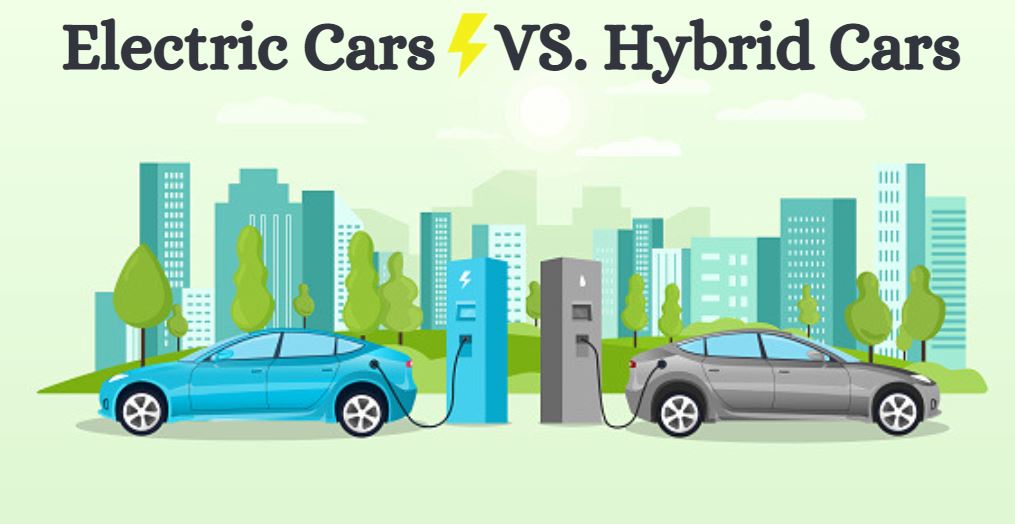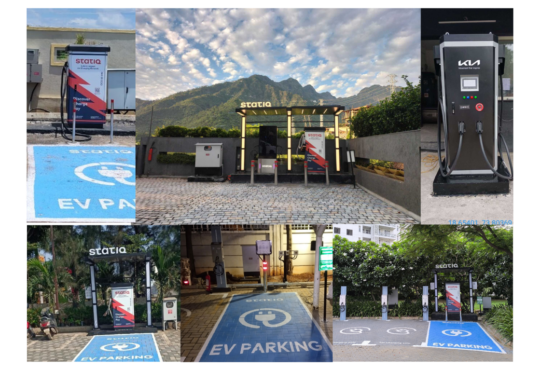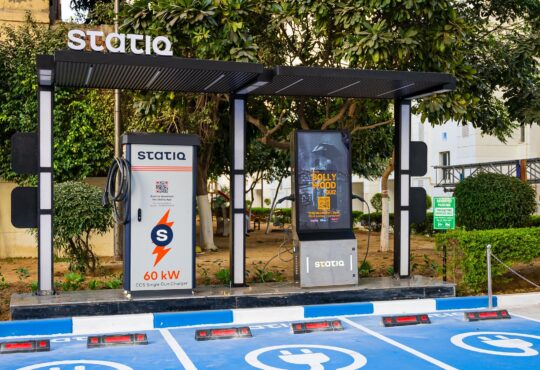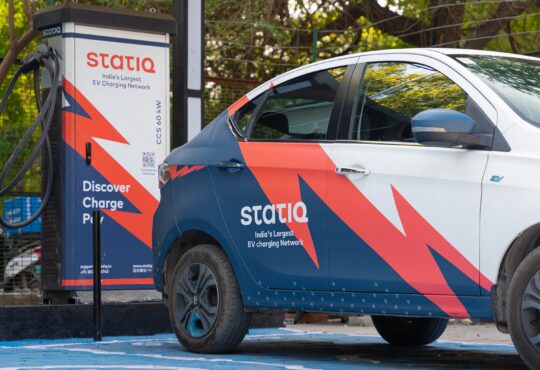
Hybrid vs. Electric Vehicles: Which One Should You Choose?
The transportation industry is one of the major contributors to pollution and greenhouse gas emissions. In the last few years, the automotive industry has witnessed drastic changes due to the introduction of electric and hybrid vehicles. Now more drivers are considering sustainable transportation over traditional gasoline-powered vehicles.
The emergence of hybrid and electric vehicles (EVs) offers a greener and more sustainable option for those looking to reduce their carbon footprint and save on fuel costs. But there is always a debate among people about which vehicle is better. In this blog, we will compare and contrast hybrid and electric vehicles, exploring their benefits, drawbacks, and key considerations to help you make an informed decision.
What’s The difference?

Before diving into the pros & cons and features of each type of vehicle, let us first understand the fundamental differences between hybrids and electric vehicles.
Hybrid vehicles use a combination of an internal combustion engine (ICE) and an electric motor to operate. It can operate on both gasoline and electricity, with the electric motor supporting the ICE. Hence, you don’t need to think twice about long trips, and additionally, you are also curbing your carbon footprint.
On the other hand, EVs are solely powered by electricity and do not have an ICE or a gas tank. You also need to plan your EV trip carefully so that you do not run out of power in between trips and can easily find the electric vehicle charging station on your route. One of the biggest advantages of electric vehicles is that they help you save money on fuel and cause zero carbon emissions.
Factors to Consider
You need to consider several factors when deciding between a hybrid and an electric car. Let’s explore some of them to help you make an informed decision:
Range and Charging Infrastructure
One crucial consideration for an EV owner is the range and availability of charging infrastructure. Hybrid vehicles have the advantage of an ICE, which allows the drivers to use gasoline when the battery is low. However, electric vehicles need EV charging stations for recharging. You must assess the availability of EV charging stations in your vicinity and along your regular driving routes before purchasing electric vehicles.
Environmental Impact
When compared to traditional ICE vehicles, both hybrid and electric vehicles offer significant environmental benefits. Hybrid vehicles reduce carbon emissions by reducing fuel consumption and utilizing electricity for short distances. Whereas electric vehicles produce zero tailpipe emissions, contributing to cleaner air quality and reduced greenhouse gas emissions.
Cost Considerations
Cost is an important factor when choosing between a hybrid and an electric vehicle. Hybrid vehicles are a bit cheaper than electric vehicles, which makes them more affordable for buyers. Additionally, hybrid vehicles do not require extensive charging infrastructure. However, hybrid cars are a bit more costly to maintain as compared to electric vehicles, as they have both ICE and electric motors.
The upfront cost of electric vehicles is higher than that of hybrid cars, but their maintenance cost is cheaper. They do not require fuel to run; hence, you don’t need to worry about higher fuel prices. Additionally, EVs have lower operating costs and may be eligible for tax credits and incentives.
Lifestyle and Driving Habits
Your lifestyle and driving habits also play a crucial role in determining whether a hybrid or an EV is the right choice for you. If you frequently take long road trips or require a vehicle with a long-range, a hybrid may be a more practical option.
However, there are many electric vehicles introduced in the market that cover longer distances on a single charge, such as the Hyundai Ioniq 5, BYD Atto 3, MG ZS EV, and many more. An electric vehicle is a better option if you are looking for a shorter daily commute. It will not only reduce your carbon footprint but also help you save money on your daily commute.
Pros and Cons of Hybrid Vehicles

Now let’s delve into the advantages and disadvantages of hybrid vehicles:
Pros of Hybrid Vehicles
- Fuel Efficiency: Hybrids offer improved fuel efficiency compared to traditional gasoline-powered vehicles, resulting in lower fuel costs and reduced emissions.
- Extended Range: The presence of an ICE in hybrids eliminates range anxiety, as drivers can rely on gasoline when the battery charge is low.
- Availability: Hybrids are more readily available on the market compared to EVs, offering a wider range of models and options to choose from.
- Lower Upfront Cost: Hybrids generally have a lower upfront cost compared to EVs, making them a more affordable option for buyers.
Cons of Hybrid Vehicles
- Limited Electric Range: Hybrids have a limited electric range compared to EVs, as they primarily rely on gasoline for longer trips.
- Maintenance Complexity: Hybrids have both electric and internal combustion components, which can increase maintenance and repair costs compared to traditional vehicles.
- Environmental Impact: While hybrids offer improved fuel efficiency, they still rely on gasoline and emit greenhouse gases, contributing to environmental pollution.
Pros and Cons of Electric Vehicles
Now let’s explore the advantages and disadvantages of electric vehicles:
Pros of Electric Vehicles
- Zero Emissions: EVs produce zero tailpipe emissions, significantly reducing air pollution and greenhouse gas emissions.
- Lower Operating Costs: EVs have lower operating costs compared to traditional vehicles, as they require less maintenance and have lower fuel costs.
- Government Incentives: Many governments offer tax credits and incentives for purchasing EVs, making them a more attractive option for buyers.
- Quiet and Smooth Ride: EVs offer a quiet and smooth driving experience with instant torque and responsive acceleration.
Cons of Electric Vehicles
- Limited Range: EVs have a limited range compared to hybrid vehicles, requiring access to a robust charging infrastructure for longer trips. Fortunately, due to active government participation, India is moving towards building a robust EV charging infrastructure.
- Charging Infrastructure: The availability of charging stations may vary depending on your location, making it essential to consider the accessibility of charging infrastructure in your area. Use the Statiq EV charging mobile application to find EV charging stations near you.
- Higher Upfront Cost: EVs generally have a higher upfront cost compared to hybrids and traditional vehicles, making them less affordable for some buyers. But the Indian government has introduced the FAME-II scheme and many incentives to make electric vehicles more affordable.
- Charging Time: Charging an EV can take significantly longer than refueling a traditional vehicle. While fast-charging stations are becoming more common, slow AC chargers can take several hours to fully charge the battery.
Conclusion
Choosing between a hybrid and an electric vehicle requires careful consideration of various factors, including range, charging infrastructure, environmental impact, cost, and driving habits. While hybrids offer the advantage of extended range and availability, EVs provide a greener and more sustainable option with lower operating costs.
Ultimately, the decision depends on your individual needs, preferences, and commitment to reducing your carbon footprint. By weighing the pros and cons outlined in this blog, you can make an informed choice that aligns with your driving needs and environmental goals.



